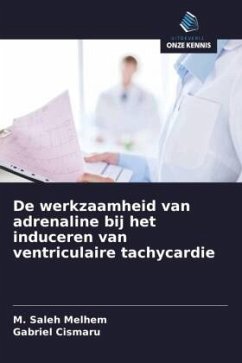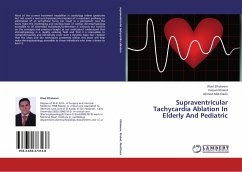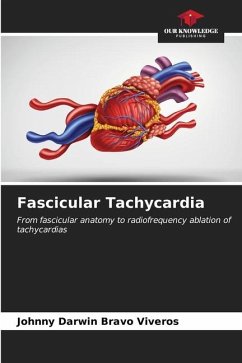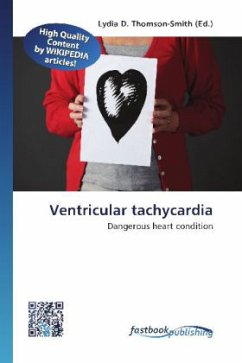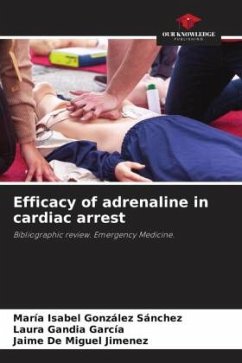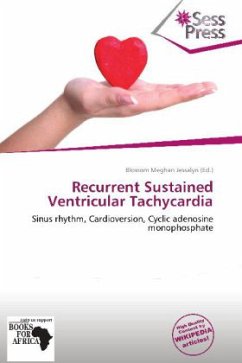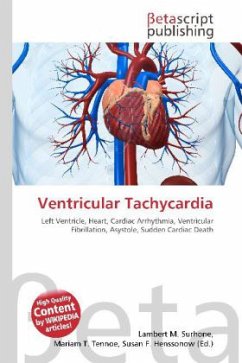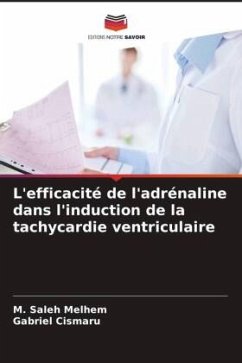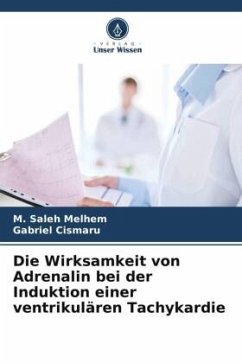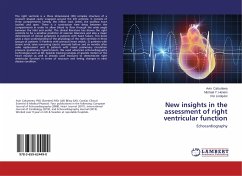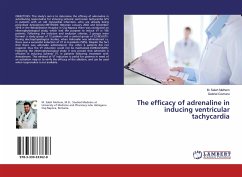
The efficacy of adrenaline in inducing ventricular tachycardia
Versandkostenfrei!
Versandfertig in 6-10 Tagen
27,99 €
inkl. MwSt.

PAYBACK Punkte
14 °P sammeln!
OBJECTIVES: This study's aim is to determine the efficacy of adrenaline in substituting Isoprenaline for inducing ischemic ventricular tachycardia (VT) in patients with an old myocardial infarction, who are already being prescribed Amiodarone.METHODS: Between January 2002 and December 2016 in the Rehabilitation Hospital in Cluj-Napoca there was conducted an electrophysiological study, which had the purpose to induce VT in 106 patients. Following the inclusion and exclusion criterias, 2 groups were formed: a study group of 12 patients and a control group of 22.RESULTS: During electrophysiologic...
OBJECTIVES: This study's aim is to determine the efficacy of adrenaline in substituting Isoprenaline for inducing ischemic ventricular tachycardia (VT) in patients with an old myocardial infarction, who are already being prescribed Amiodarone.METHODS: Between January 2002 and December 2016 in the Rehabilitation Hospital in Cluj-Napoca there was conducted an electrophysiological study, which had the purpose to induce VT in 106 patients. Following the inclusion and exclusion criterias, 2 groups were formed: a study group of 12 patients and a control group of 22.RESULTS: During electrophysiological studies, when Adrenalin was administered i.v, there was a successful induction of VT in 6 patients (50%). Despite the fact that there was adrenalin administered, the other 6 patients did not respond, thus the VT induction could not be maintained.CONCLUSIONS: Following the electrophysiological study it was proved that adrenalin is efficient in inducing ischemic VT, in patients following treatment with Amiodarone. This method of VT induction is useful for patients in need of an activation map or to verify the efficacy of the ablation, and can be used when Isoprenaline is not available.



